
12.10.2007: Visit to Parmarthik Shikshan Sanstha
7 Mumukshus are participating in the German language course, Mumukshu Kirti, Mumukshu Shikha, Mumukshu Shweta, Mumukshu Nikita, Mumukshu Alpa, Mumukshu Meena, Mumukshu Sheetal. They invited me to take lunch with them and to visit their institution with the beautiful name, “Institution where Mumukshus are taught how to move towards liberation”. We arrived about 11:30, and most of Mumukshus already took lunch. Dinner is taken at 16:30; after sunset and before sunrise, they do not take water. The day of my visit was the first day out of nine of Hindu Navrata festival. The Mumukshus were celebrating it by special spiritual exercises as contemplations, reciting of japas, and partial fasts. Kirti, Nikita, and Shikha did not take meal before 12:30 these days. In 2007, Kirti is head of Mumukshus, last year it was Nikita’s turn.
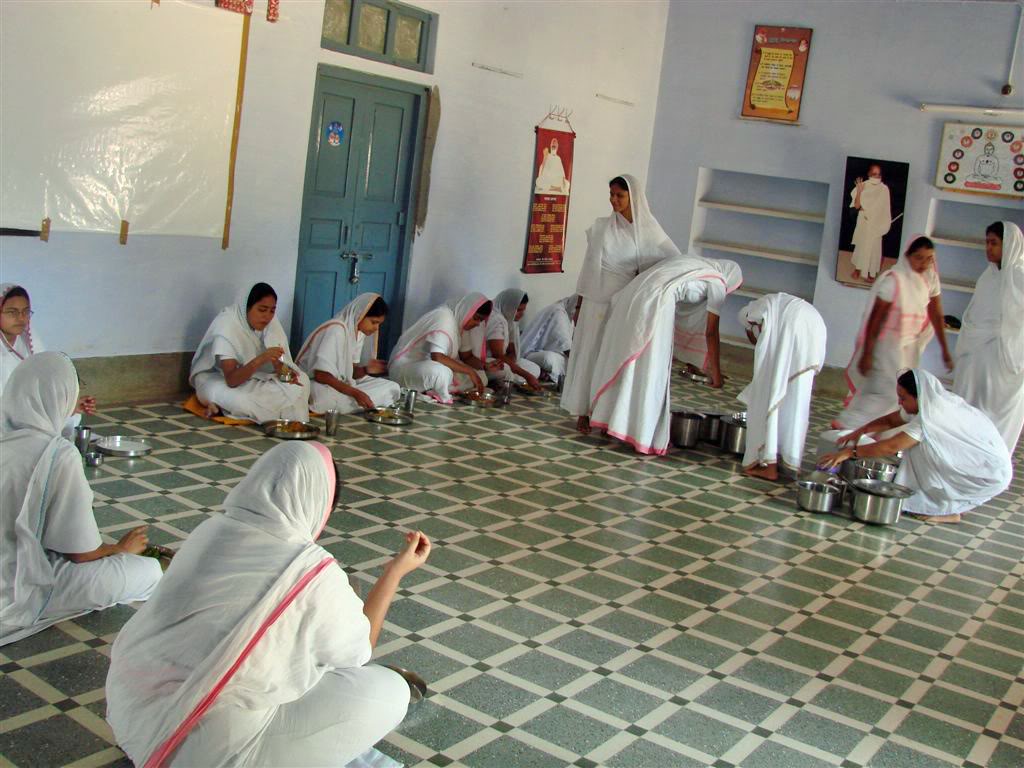 Mumukshus in their little dining hall
Mumukshus in their little dining hall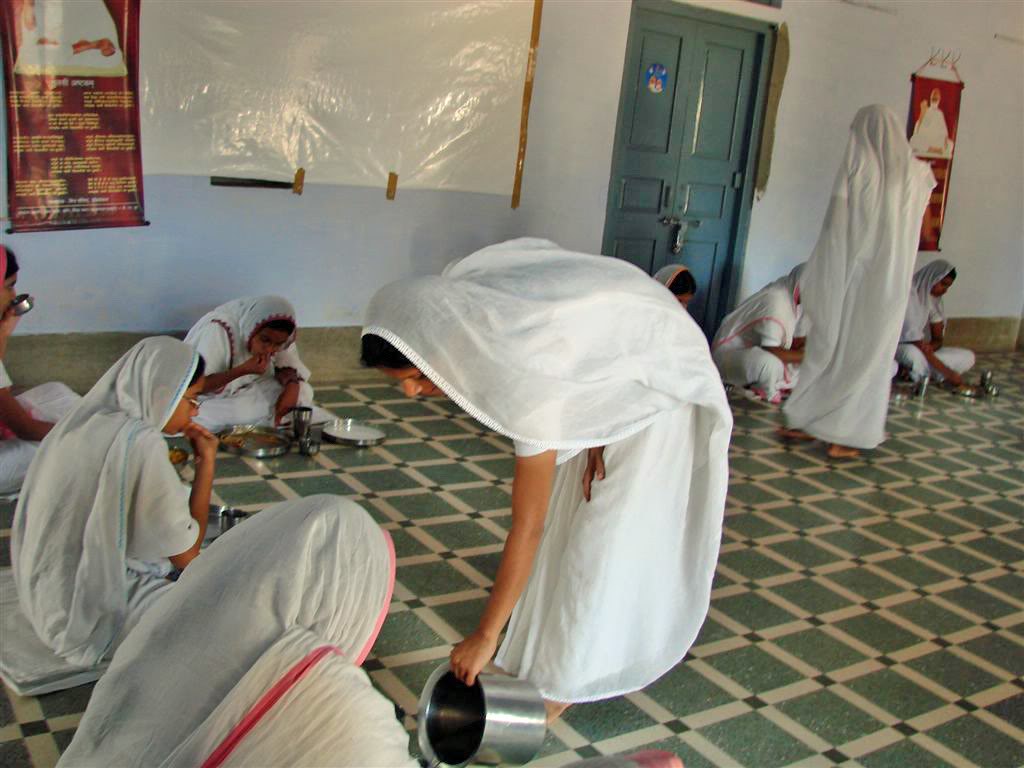 Mumukshus in their little dining hall
Mumukshus in their little dining hall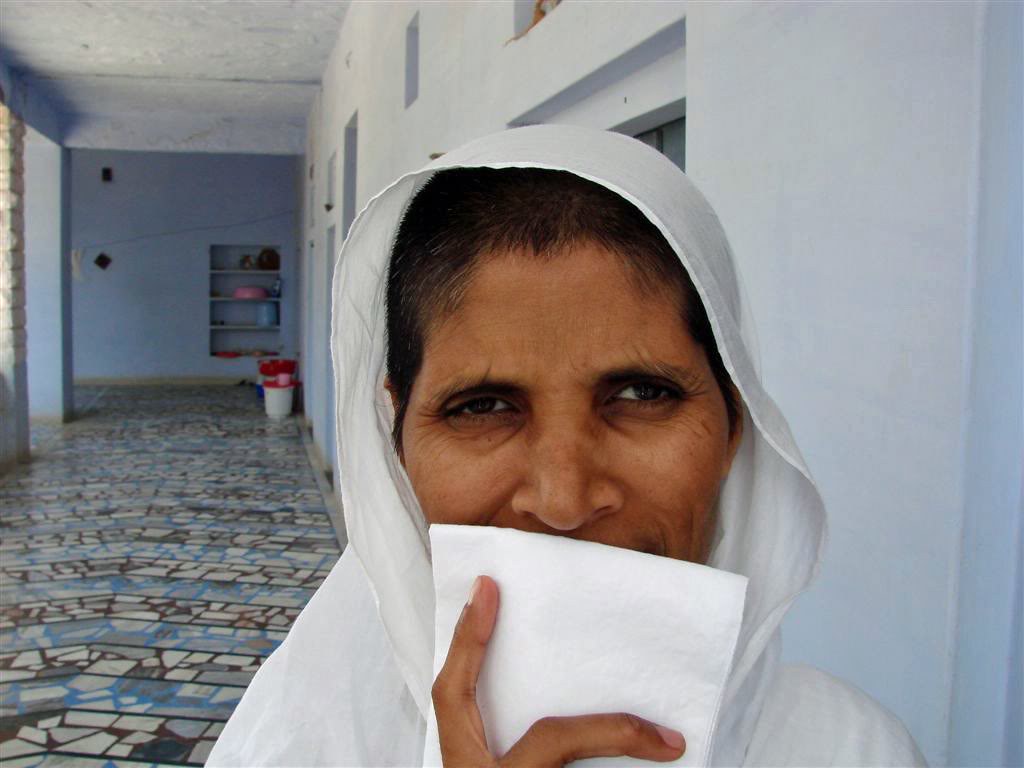 Samani Malli Pragya, director of Parmatik Shikshan Sanskar
Samani Malli Pragya, director of Parmatik Shikshan Sanskar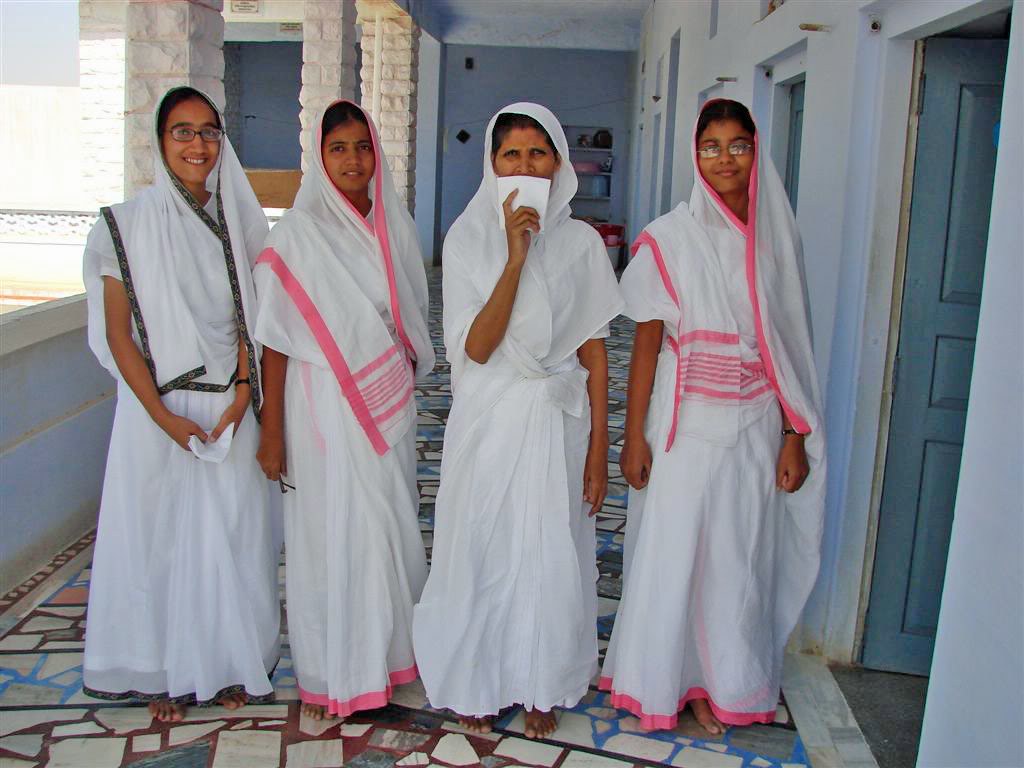 Shikha, Nikita, Samani Malli Pragya, Kirti
Shikha, Nikita, Samani Malli Pragya, KirtiShikha, Kirti, and Nikita presented me to their director, Samani Malli Pragya. We are known to each other since many years. It is the second year that Samani Malli Pragya is head of the institution. Many head functions are given rotationally. The groups of Mumukshus and the rooms they live in are changed every six months. Mumukshus yet do not know if Sadhvi or Samani Diksha will be given to them. H.H. Acharya Mahaprajnaji will take this decision only.
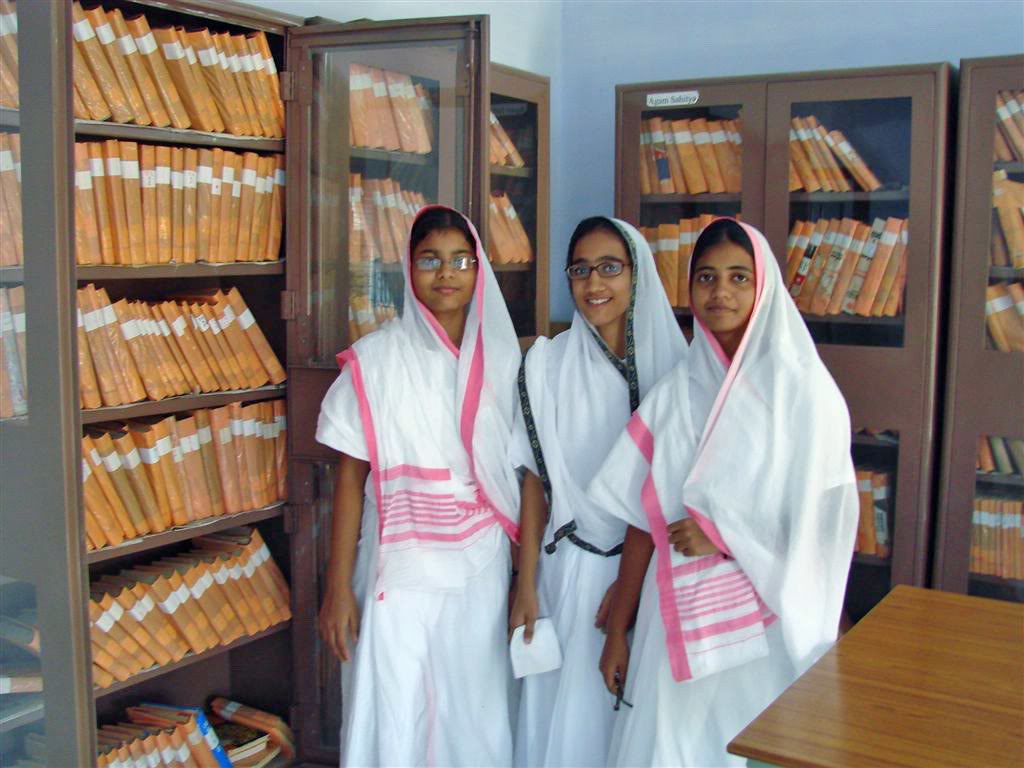 Kirti, Shikha, Nikita in the library
Kirti, Shikha, Nikita in the library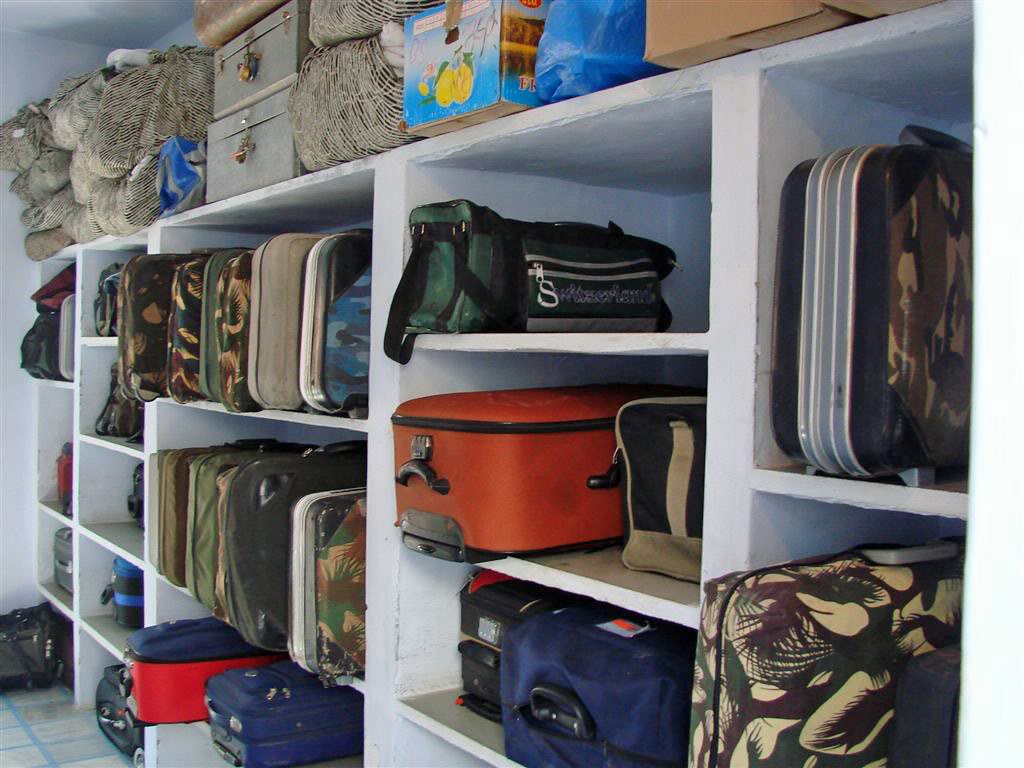 Luggage room
Luggage roomKirti, Shiksha, and Nikita started with the library, which contains about 12,000 books. The system of cataloguing and the administration has been developed by the Mumukshus. Books in various languages on different subjects are here, classical Indian antique included.
Besides the two rooms of the library the luggage room is situated. Besides their luggage, it contains all things they do not need daily. When Mumukshus travel, they get their luggage from here. It contains clothes for change and books, all have to adjust with the given size. The luggage room always is closed. The key is with the group actually responsible for its maintenance.
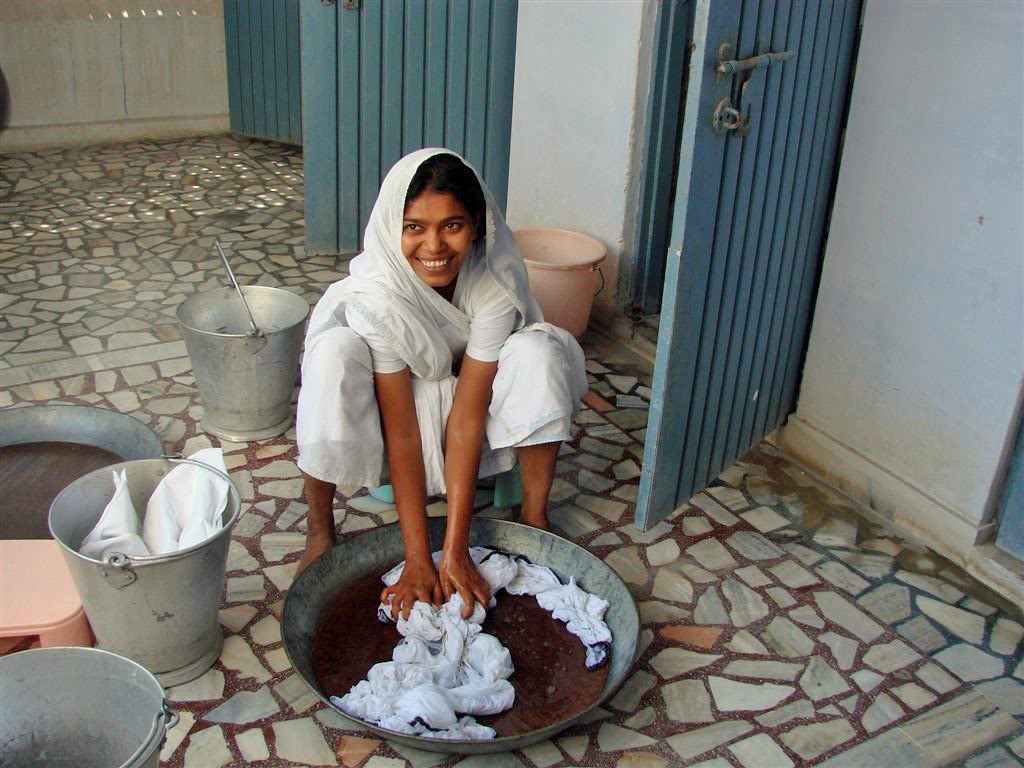 Laundry service
Laundry service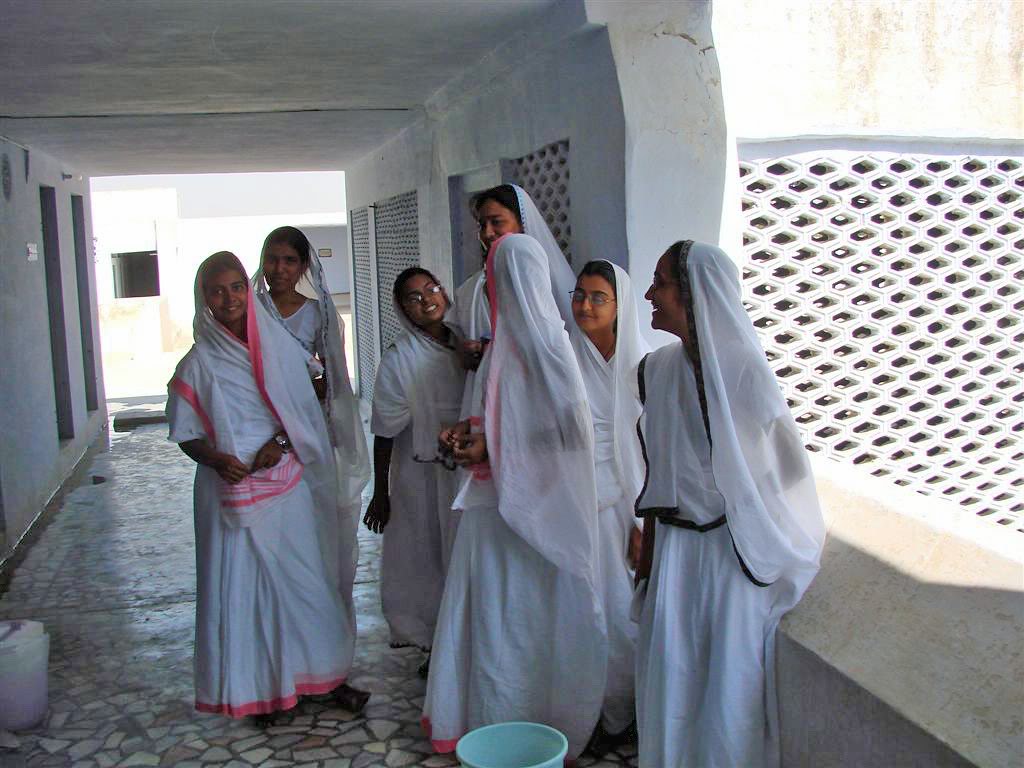 Talks
Talks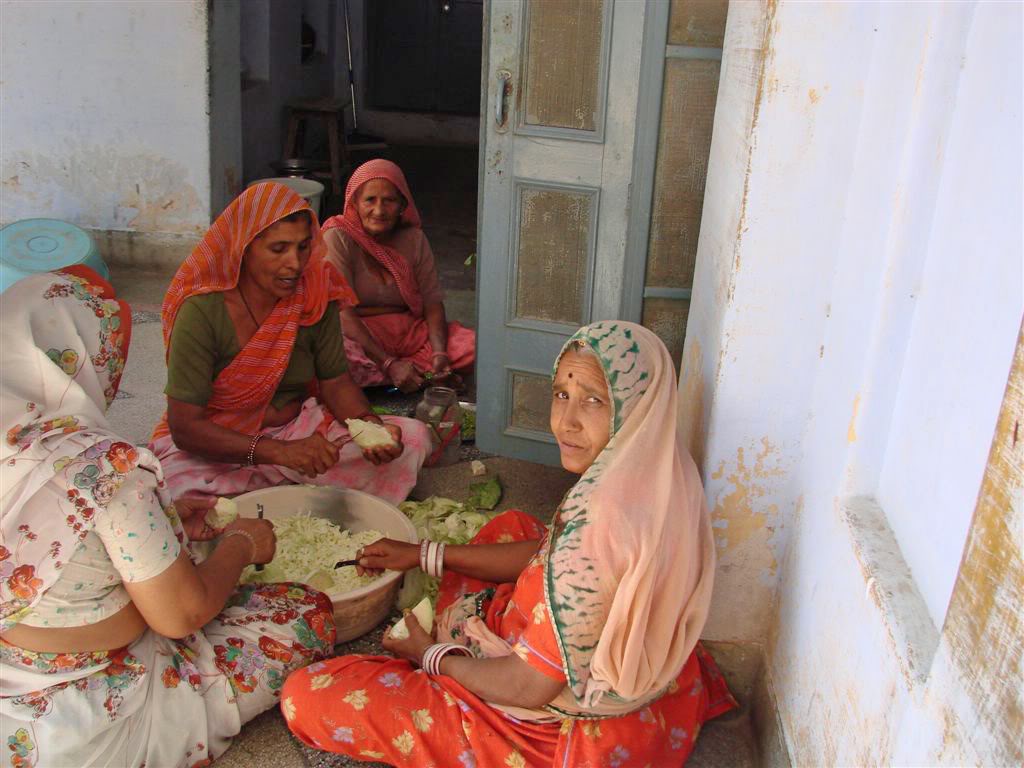 The cooks
The cooks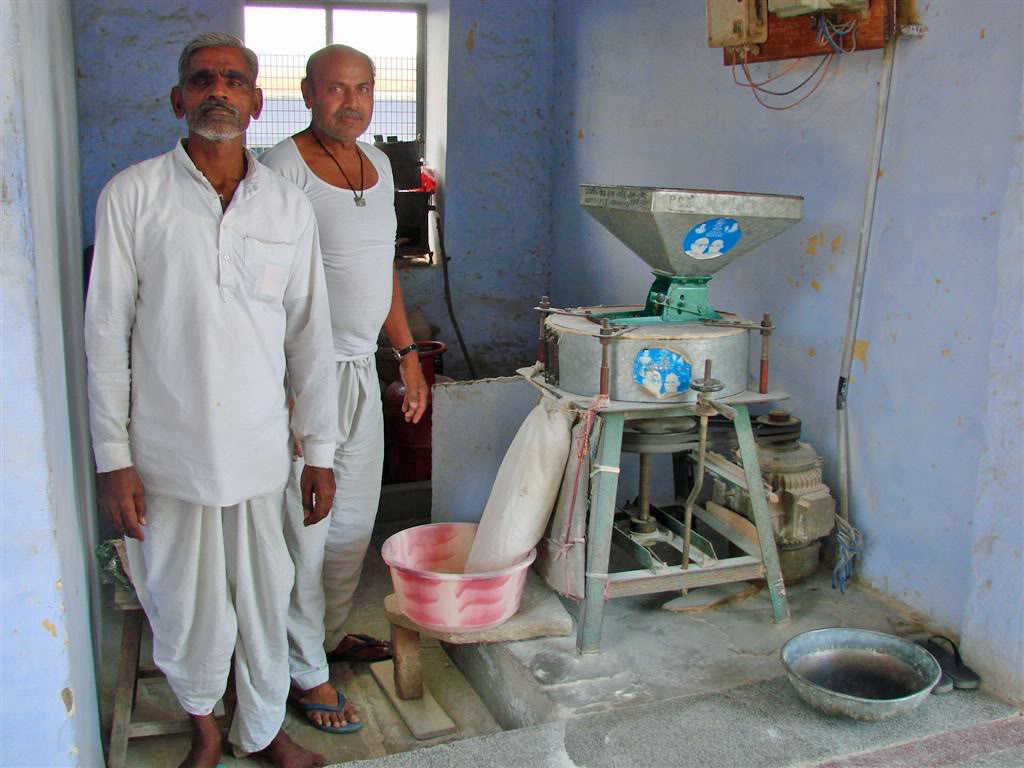 The machine men
The machine menChanging Mumukshu groups do all the housework, except cooking and milling of grain. They clean the rooms and the building, sanitary facilities included, serve at meals and wash the eating utensils.
Many Mumukshus are highly qualified as former dentist or software engineer; some of them come to the institution with no education at all. All of them need the approval of their families to the spiritual path they want to dedicate their life.
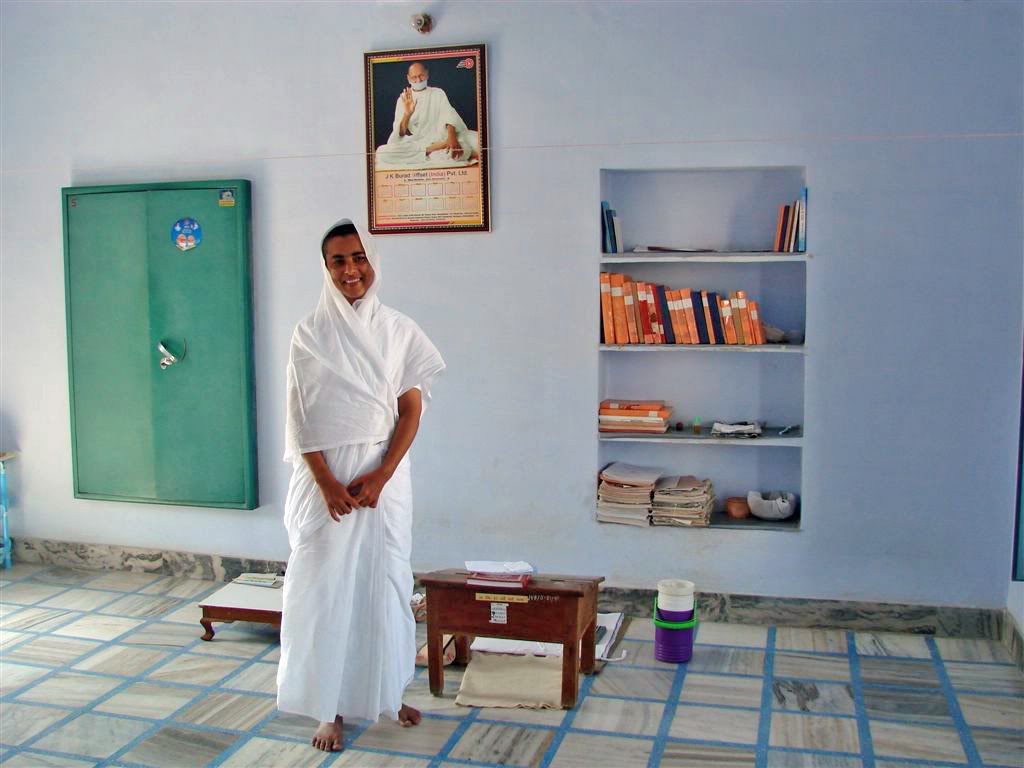 Samani Kavya Pragya
Samani Kavya Pragya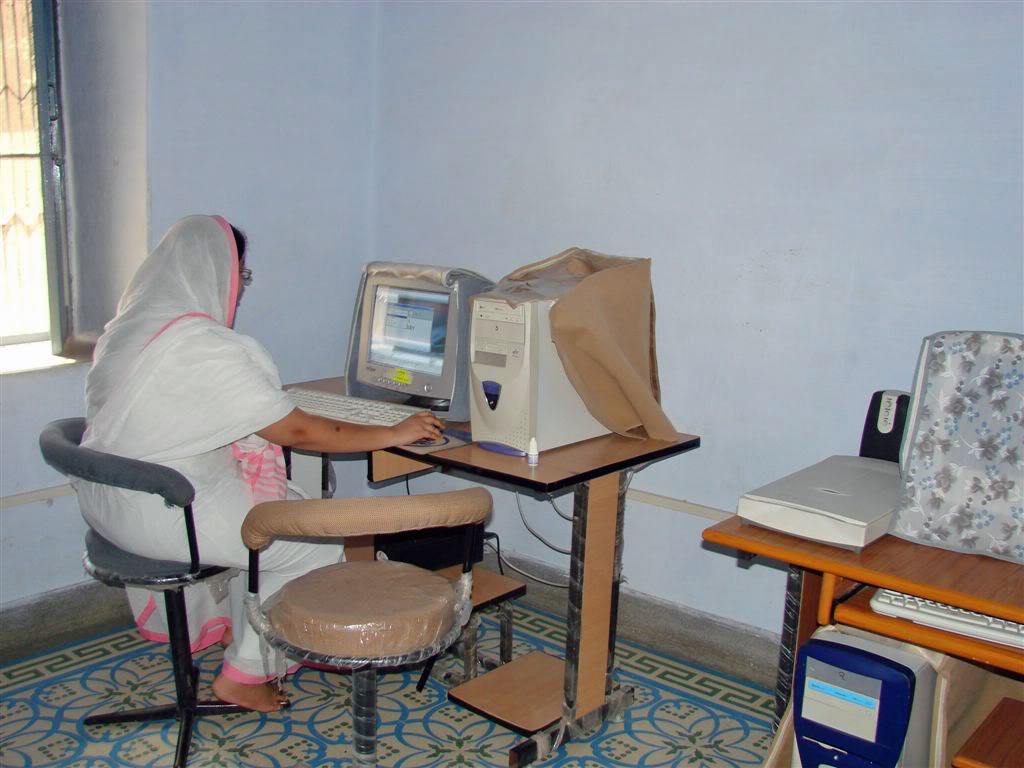 Mumukshu working on computer
Mumukshu working on computer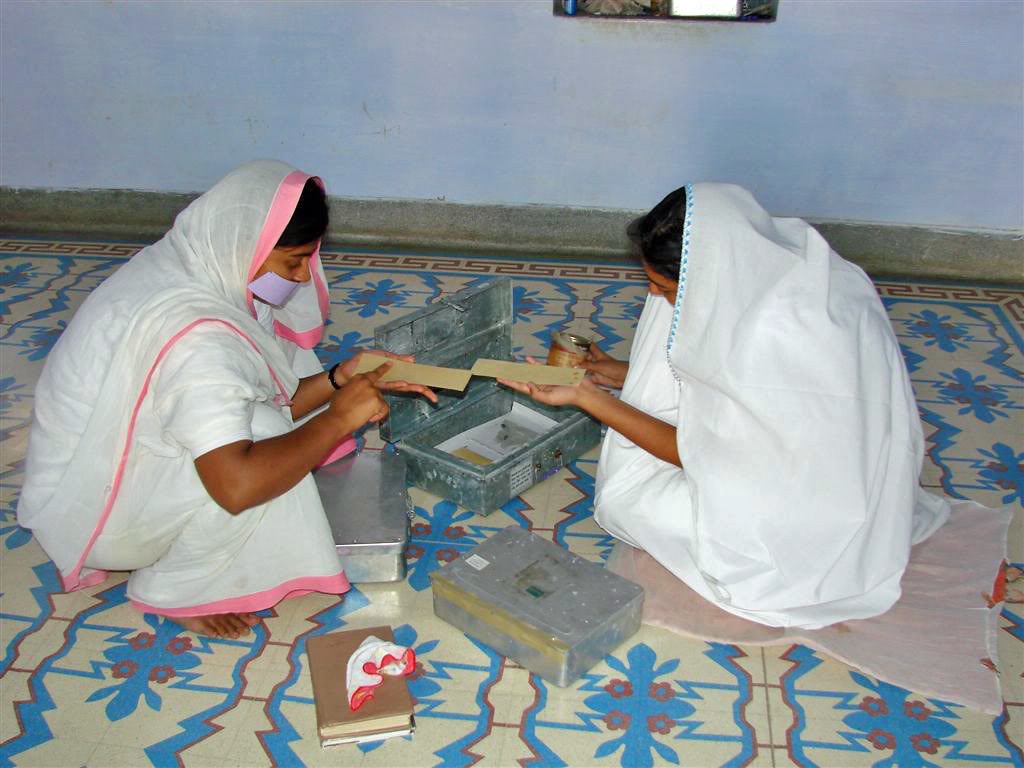 Mumukshus producing mouth cover
Mumukshus producing mouth coverSamani Malli Pragya lives in the same room like all Mumukshus with the 4 Samanijis of her group. The 4 Samanijis in charge give her support and energy. When we reached their room, Samani Kavya Pragya just was doing some research work, the other Samanijis were busy elsewhere.
One Mumukshu worked with the computer, another group of Mumukshus was producing the mouth covers for the saints. They are made of cotton stripes and hand painted.
Meanwhile it was lunch time, which I chose to take at the visitors’ table. After the meal, they served a hand pressed orange juice to me.
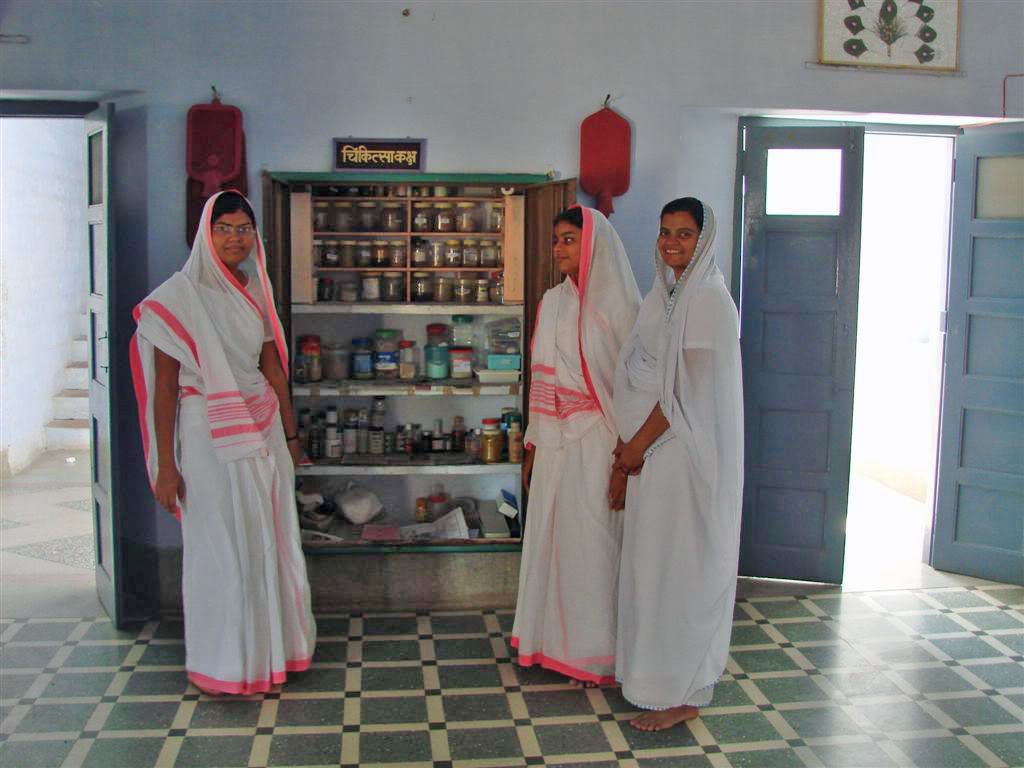 Little pharmacy
Little pharmacy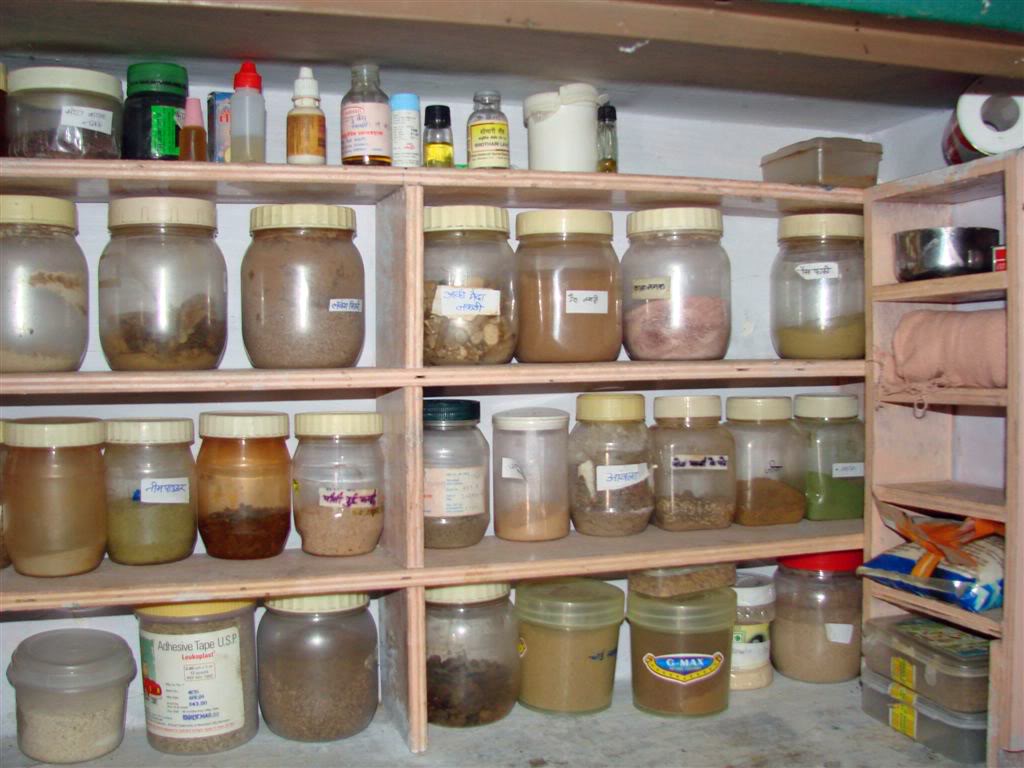 According to Ayurveda produced powders
According to Ayurveda produced powders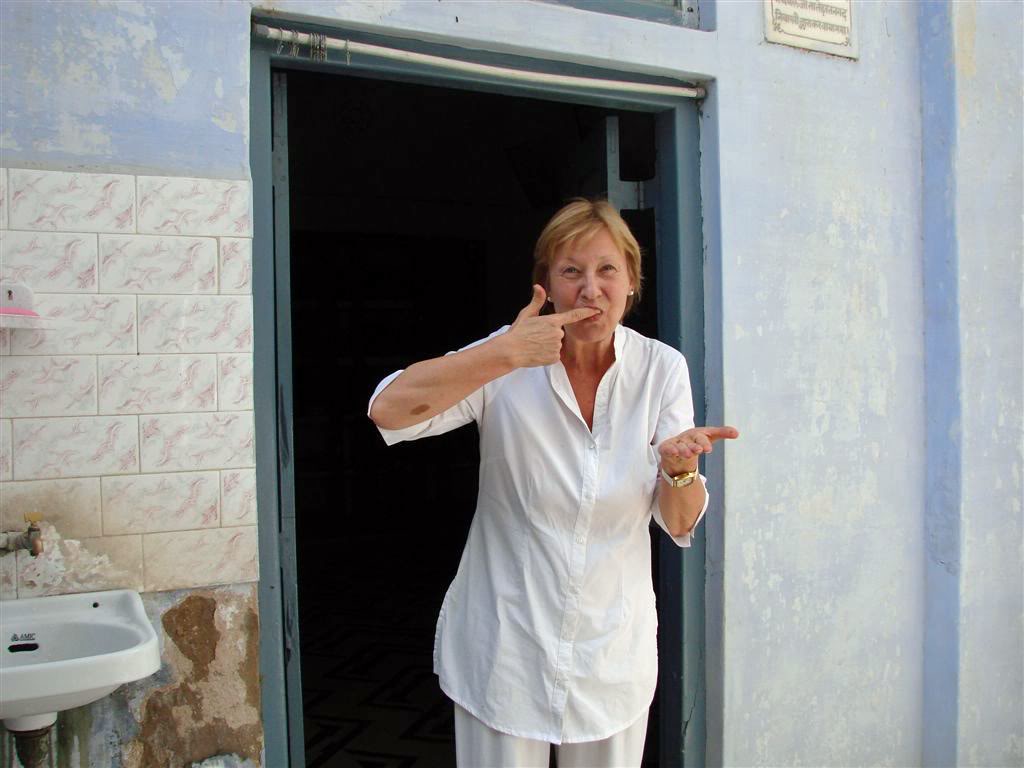 Karuna tries (bitter!) powder made from Neemtree leaves
Karuna tries (bitter!) powder made from Neemtree leaves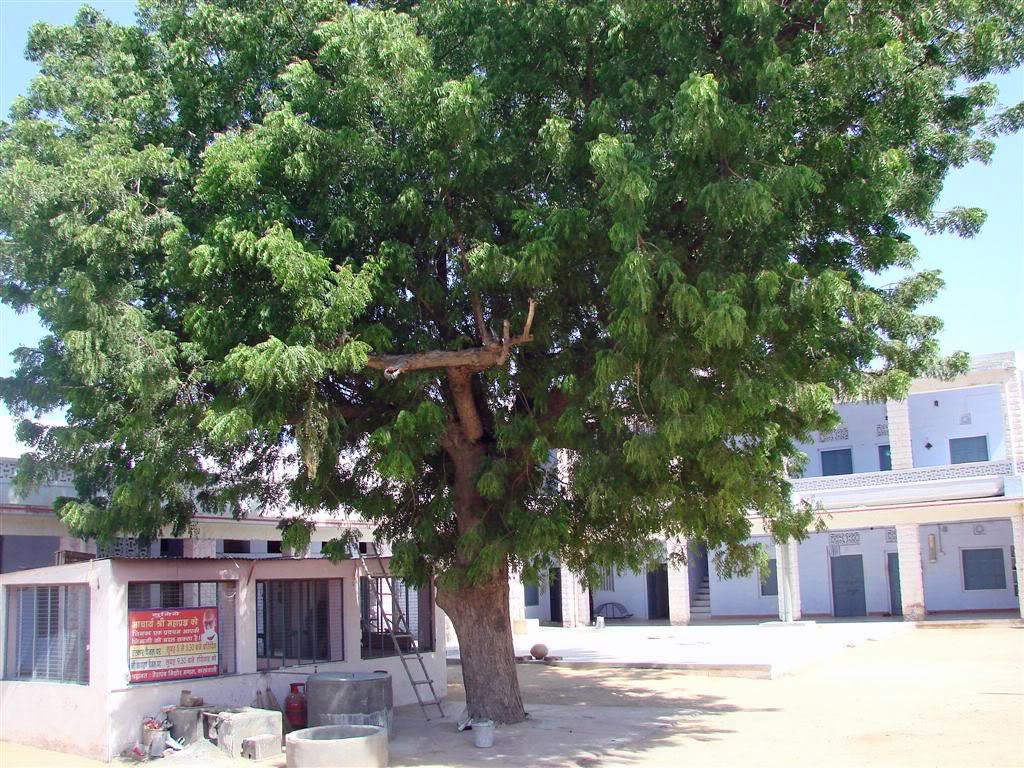 The powder was made from the leaves of this tree
The powder was made from the leaves of this treeThe powders mostly are produced by the Mumukshus themselves. Mumukshu Shweta (l) when I came was in charge of the little pharmacy. Besides their group task, every Mumukshu is responsible individually for a task specially given to her.
I accepted the invitation to try the powder made of Neemtree leaves for dental care. It had some bitter taste, but was effective.
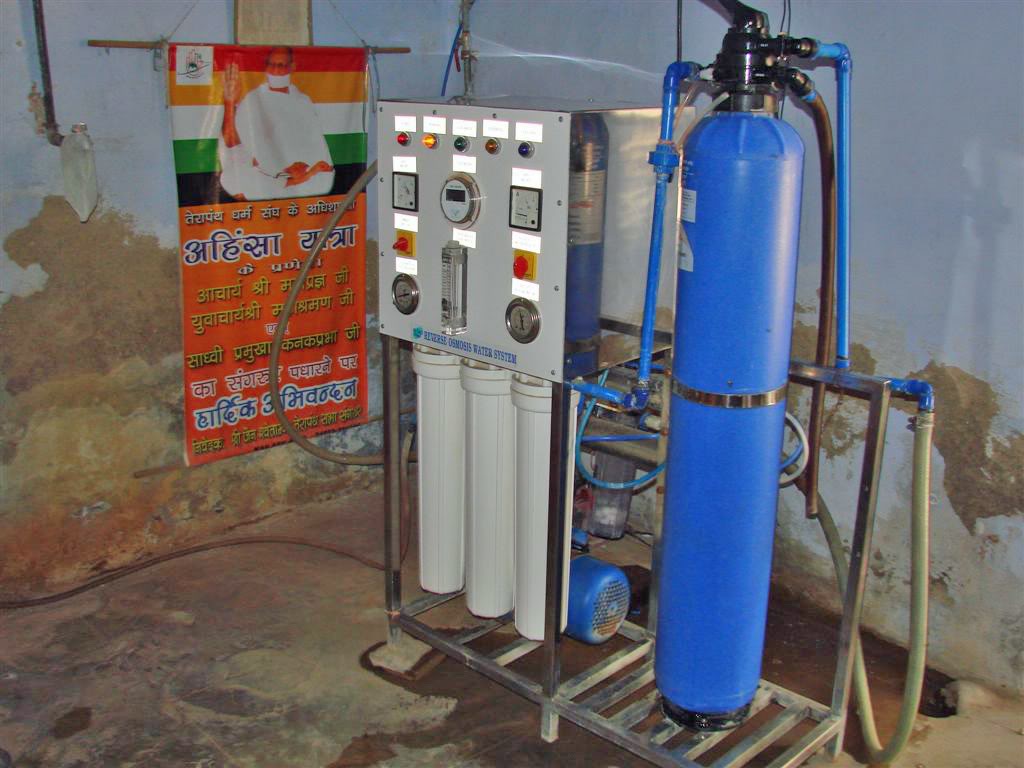 Mineralising water pump
Mineralising water pump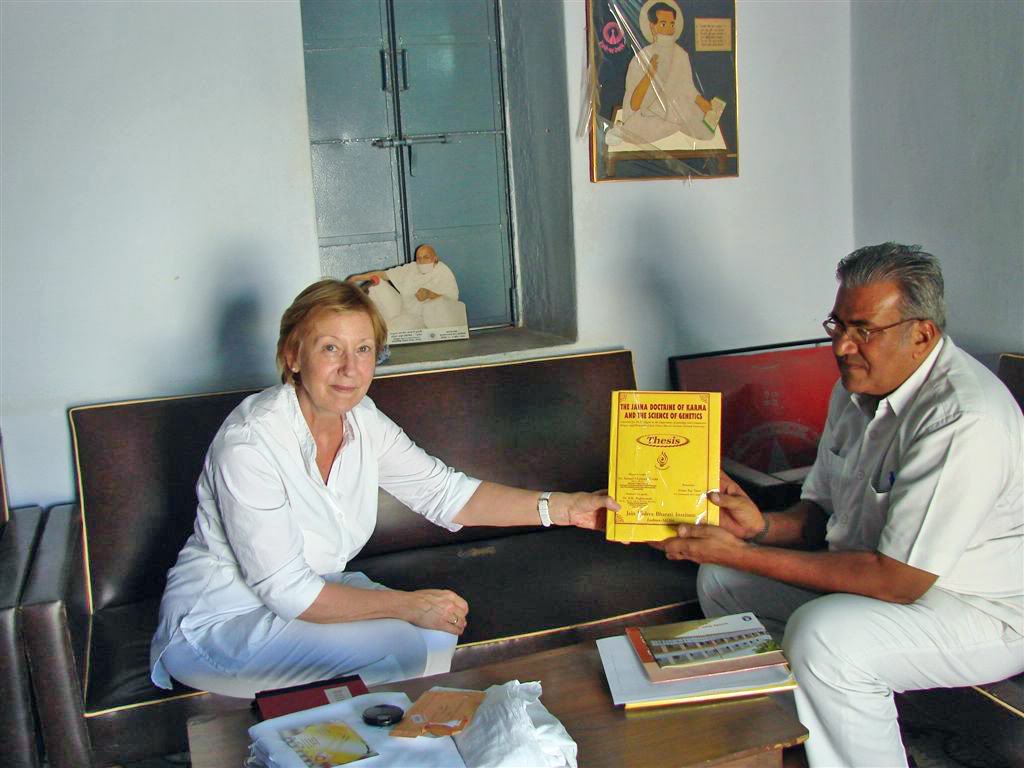 Dr. Sohanraj Tater showing his PhD work on Genes & karma
Dr. Sohanraj Tater showing his PhD work on Genes & karmaFinally, the mineralising water-pump was shown to me, which was installed by advice of Mr. Sohanraj Tater. Mr. Sohanraj Tater’s speciality as an engineer is water treatment. He is also convenor of PSS. Some years ago, he left his worldly life in form of family and house in Jodhpur for dedicating his life to service in different institutions. His schedule resembles to a monk’s, he gets up at 04:00 and goes to bed at 23:00. Further, this year he completed his PhD research on “Jain Theory of Karma and the Science of Genetics”, which took him four years to compile. He also is advisor to JVB University’s vice-chancellor.
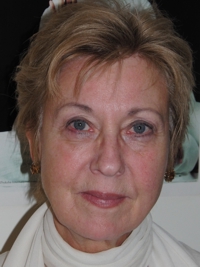 Editor Carla Geerdes
Editor Carla Geerdes